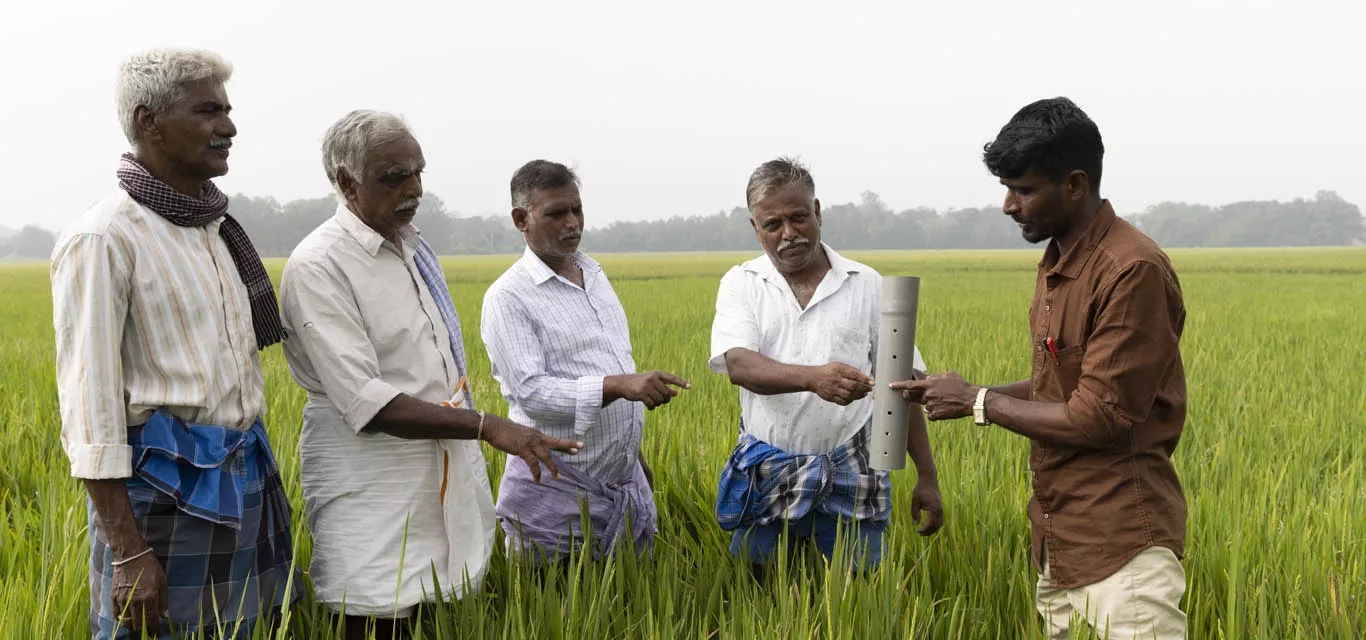Climate change poses significant challenges to the world's food systems. Extreme and frequent weather events threaten agri productivity and food security.
In India, agriculture is a vital pillar of the economy, and the impact of climate change can adversely impact the nation's food and livelihood security, especially given its growing population. The agriculture sector must urgently find solutions to adapt to the disruptive effects of climate change like rising temperatures, erratic rainfall patterns and increasingly frequent extreme weather events. At the same time, it must transition to sustainable agricultural systems to safeguard the future of food production and ensure that no one goes hungry.
At ITC, our decades-long engagement with India's agri sector has enabled us to craft unique solutions that help farmers adapt to climate change. ITC strives to build climate resilience and de-risk farmers in its agri value chains through focused interventions like Climate Smart Agriculture.
CSA Adaptation Toolkit
ITC's Adaptation Toolkit for CSA is designed to identify local challenges and prioritises practices based on feasibility, cost, performance and impact for specific clusters. During roll-out, crop-specific toolkits are distributed and partner trainings conducted through Farmer Field Schools and demonstration farms. This is followed by extensive farmer training and on-ground engagement.
Crops under Climate Smart Agriculture
Wheat
Rice
Soybean
Onion
Fruit
Spices
ITC's Climate Smart Agriculture practices
ITC's Life Sciences and Technology Centre (LSTC), equipped with world-class scientific platforms and centres of excellence in Agroforestry and Crop Sciences, is at the forefront of leading R&D efforts towards building climate-smart varieties.
Outcome
Collaboration for Change
6 Public-Private Partnerships for Climate Smart Agriculture












